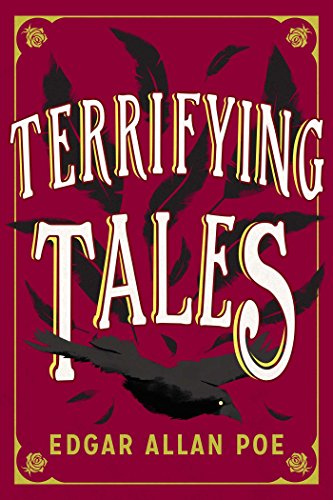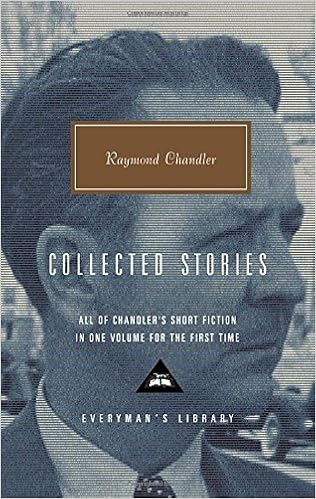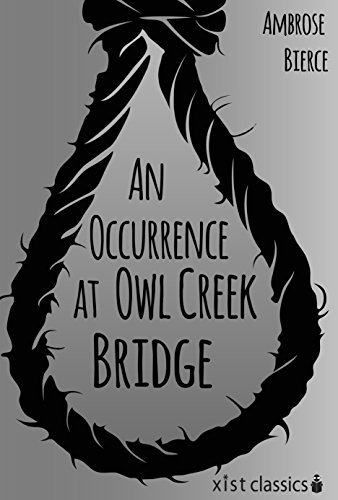I
have always been interested in first lines, especially in short stories and
novels. Reading a first line often will tell you right off what the setting is,
what the conflict is, what the tone or mood of the work is, or a combination of
all three.
 Take for example Edgar Allen Poe's "The Fall of
the House of Usher." Here is the first sentence in that story: "During
the whole of a dull, dark, and soundless day in the autumn of the year, when
the clouds hung oppressively low in the heavens, I had been passing alone, on
horseback, through a singularly dreary tract of country; and at length found
myself, as the shades of the evening drew on, within view of the melancholy
House of Usher." Words like "dull, dark, and soundless day,"
"clouds hung oppressively low," "dreary tract of country"
and "the melancholy House of Usher" have a sinister and foreboding feel
to them. Poe is a master at setting up the mood early. In this sentence, you
get setting and mood, and you read on to find out why.
Take for example Edgar Allen Poe's "The Fall of
the House of Usher." Here is the first sentence in that story: "During
the whole of a dull, dark, and soundless day in the autumn of the year, when
the clouds hung oppressively low in the heavens, I had been passing alone, on
horseback, through a singularly dreary tract of country; and at length found
myself, as the shades of the evening drew on, within view of the melancholy
House of Usher." Words like "dull, dark, and soundless day,"
"clouds hung oppressively low," "dreary tract of country"
and "the melancholy House of Usher" have a sinister and foreboding feel
to them. Poe is a master at setting up the mood early. In this sentence, you
get setting and mood, and you read on to find out why.
Another
Poe story that I have enjoyed throughout my reading life is Poe's "The
Telltale Heart." Here is the first sentence of that story: "True!—nervous—very,
very dreadfully nervous I had been and am; but why will you say that I am mad?"
Immediately, you are made aware that you just might have an unreliable, even
mad, narrator, but not only that. Poe has tricked you into reading on to find
out why he is "very, very dreadfully nervous." It is one of my
favorite first lines.
Here's
one by Raymond Chandler in "I'll be Waiting" that sets up time and
place. "At one o'clock in the morning, Carl, the night Porter, turned down
the last of three table lamps in the main lobby of the Windermere Hotel."
It is one o'clock in the morning, and the hotel is shutting down. Rarely does
anything good happen at one o'clock in the morning. What sort of mischief will
the main character get into? You read on to find out.
 William Faulkner's
first line in "A Rose for Emily" is nothing short of brilliant.
"When Miss Emily Grierson died, our whole town went to her funeral: the
men through a sort of respectful affection for a fallen monument, the women
mostly out of curiosity to see the inside of her house, which no one save an
old man-servant—a combined gardener and cook—had seen in at least ten years."
There is a mystery here. Why had no one been inside Miss Emily's house in at
least ten years? Why do the men see her as a "fallen monument" and
the women are merely curious? Not only that, Faulkner lets the reader know right
away that the point of view is atypical of what h/she is used to. One word,
"our," is all he needs to tell you that."
William Faulkner's
first line in "A Rose for Emily" is nothing short of brilliant.
"When Miss Emily Grierson died, our whole town went to her funeral: the
men through a sort of respectful affection for a fallen monument, the women
mostly out of curiosity to see the inside of her house, which no one save an
old man-servant—a combined gardener and cook—had seen in at least ten years."
There is a mystery here. Why had no one been inside Miss Emily's house in at
least ten years? Why do the men see her as a "fallen monument" and
the women are merely curious? Not only that, Faulkner lets the reader know right
away that the point of view is atypical of what h/she is used to. One word,
"our," is all he needs to tell you that." Donald Barthelme's first line in "Me and Miss Mandible" grabs
you by the throat and pulls you into the story immediately. "Miss Mandible
wants to make love to me but she hesitates because I am officially a child; I
am, according to records, according to the gradebook on her desk, according to
the card index in the principal's off, eleven years old." Could this story
really be a case of pedophilia? But wait. The narrator says he is
"officially a child" suggesting perhaps that he might not be, so you
read on to find out for sure.
Donald Barthelme's first line in "Me and Miss Mandible" grabs
you by the throat and pulls you into the story immediately. "Miss Mandible
wants to make love to me but she hesitates because I am officially a child; I
am, according to records, according to the gradebook on her desk, according to
the card index in the principal's off, eleven years old." Could this story
really be a case of pedophilia? But wait. The narrator says he is
"officially a child" suggesting perhaps that he might not be, so you
read on to find out for sure.
Mickey Spillane's first line in his novel Kiss Me Deadly, introduces us to character and scene that demand
to be read. "All I saw was the dame standing there in the glare of the
headlights, waving her arms like a huge puppet and the curse I spit out filled
the car and my own ears." She's not a woman; she's a "dame." He
doesn't just curse; he spits it out. This narrator is not a banker. That's for
sure. There is a mystery in that first line also. What is the woman doing
standing in the middle
of the road, "waving her arms like a huge puppet" in the middle of
the night? You read on to find out.
Finally, this first line by Ambrose Bierce in "An Occurrence
at Owl Creek Bridge" comes to mind "A man stood upon a railroad bridge in
northern Alabama, looking down into the swift water twenty feet below." Is
he going to jump? Is he merely admiring the scenery? You move on to the next
sentence to find out, and Bierce has you hooked.
I was thinking of first lines when I wrote this one for my story,
"If This was a Movie." It is told from the point of view of John
LeGrand, a detective. "If this was a movie, the camera would start from
out of space somewhere, pan on earth, pan on North America, pan on the United
States, pan on Louisiana, pan on Ellisonville, pan on a white two-story house
with a lighted window on the second floor, pan through the window to reveal a
dead woman sprawled over a bed and me, standing over her, holding the gun that
killed her." But it isn't a movie. It's a story and his to tell.
Hopefully, the reader will read on to hear it.
In
closing, I will leave you with this thought. All great stories, whether novel
or short story, must start somewhere. Why not start with a first sentence that
will contribute to the story. Create a mystery that the reader can't resist.
Define a character as interesting or mysterious. Build a mood or tone that
envelopes the reader as h/she reads the story. A first line will not insure
that readers will keep reading; you must have a good story, after all, but it
will draw them in, and there's a good chance they will keep reading.





No comments:
Post a Comment